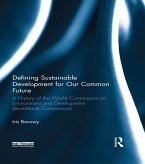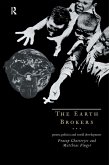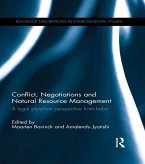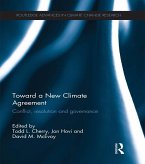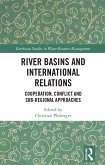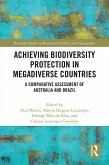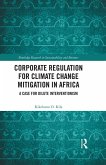This book positions the Brundtland Commission as a key event within a longer series of international reactions to pressing problems of global poverty and environmental degradation. It shows that its report, "Our Common Future", published in 1987, covered much more than its definition of sustainable development as "development that meets the needs of the present without compromising the ability of future generations to meet their own needs" for which it became best known. It also addressed a long list of issues which remain unresolved today. The book explores how the work of the Commission juggled contradictory expectations and world views, which existed within the Commission and beyond, and drew on the concept of sustainable development as a way to reconcile profound differences. The result was both an immense success and disappointment. Coining an irresistibly simple definition enabled the Brundtland Commission to place sustainability firmly on the international agenda. This definition gained acceptability for a potentially divisive concept, but it also diverted attention from underlying demands for fundamental political and social changes.
Meanwhile, the central message of the Commission - the need to make inconvenient sustainability considerations a part of global politics as much as of everyday life - has been side-lined. The book thus assesses to what extent the Brundtland Commission represented an immense step forward or a missed opportunity.
Dieser Download kann aus rechtlichen Gründen nur mit Rechnungsadresse in A, B, BG, CY, CZ, D, DK, EW, E, FIN, F, GR, HR, H, IRL, I, LT, L, LR, M, NL, PL, P, R, S, SLO, SK ausgeliefert werden.
"The Brundtlandt Commission is today often written off as either the dawn of a new era or as a massive failure. Its work is usually reduced to a single phrase - "sustainable development" - which, ironically, had its origins elsewhere. Iris Borowy gives us an eye-opening and very readable story of the commission's aims and achievements and its impact worldwide. Borowy has written a fascinating historical account of the international actors and their convictions, of ideas and interests, and the behind-the-scene struggles and debates that made the Brundtlandt report a landmark in political thought towards a better future." - Christof Mauch, Director, Rachel Carson Center for Environment and Society at LMU Munich and Past President, European Society for Environmental History.
"A fascinating book and a rewarding read for all of those interested in the events and ideas leadung up to the 1992 Rio Earth Summit and the continuing global debate on the defining issues of our time." - from the foreword by Jim MacNeill.
"God bok med vide perspektiver." - Hans Christian Bugge, Professor emeritus, Institutt for offentlig rett, Universitetet i Oslo, Michael 2014; 11: 45-55.
"Defining Sustainable Development is an excellent book. It addresses, or at least engages with, a number of the 'big questions in geography' as posited by Cutter et al. (2002). It is very important for geographers who are interested in understanding how the earth has been transformed by human action, how those actions relate to international politics, the impacts of theoretical conceptualization of sustainable development and the successes and failures of implementation. It is a book that encapsulates one recent era, while providing valuable lessons for contemporary and future efforts to address the important issues that remain unresolved." - Australian Geographer, Phil Mcmanus, The University of Sydney, Australia.



